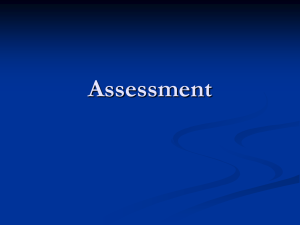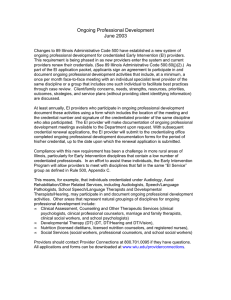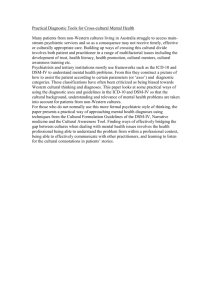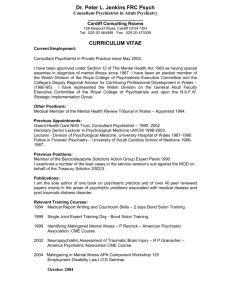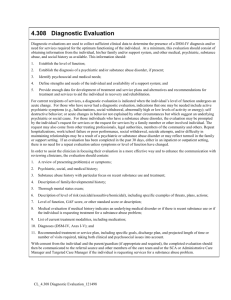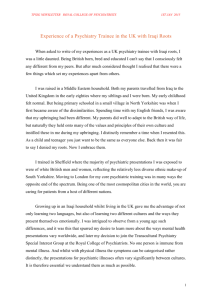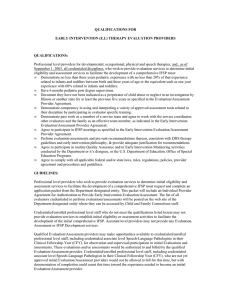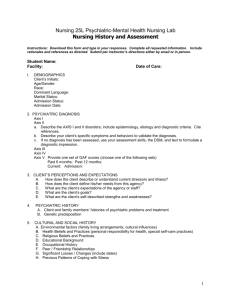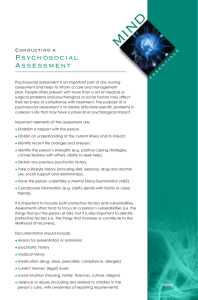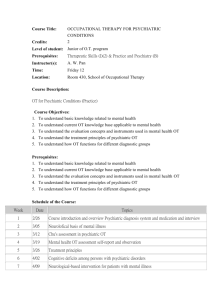Determining Clinical Necessity
advertisement
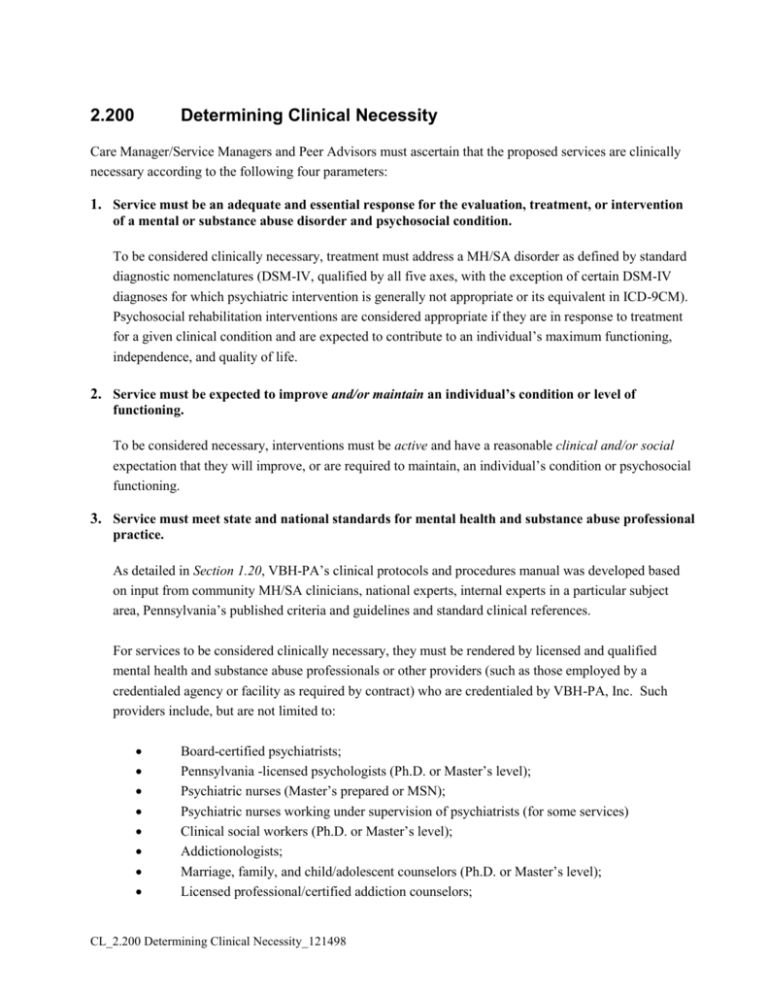
2.200 Determining Clinical Necessity Care Manager/Service Managers and Peer Advisors must ascertain that the proposed services are clinically necessary according to the following four parameters: 1. Service must be an adequate and essential response for the evaluation, treatment, or intervention of a mental or substance abuse disorder and psychosocial condition. To be considered clinically necessary, treatment must address a MH/SA disorder as defined by standard diagnostic nomenclatures (DSM-IV, qualified by all five axes, with the exception of certain DSM-IV diagnoses for which psychiatric intervention is generally not appropriate or its equivalent in ICD-9CM). Psychosocial rehabilitation interventions are considered appropriate if they are in response to treatment for a given clinical condition and are expected to contribute to an individual’s maximum functioning, independence, and quality of life. 2. Service must be expected to improve and/or maintain an individual’s condition or level of functioning. To be considered necessary, interventions must be active and have a reasonable clinical and/or social expectation that they will improve, or are required to maintain, an individual’s condition or psychosocial functioning. 3. Service must meet state and national standards for mental health and substance abuse professional practice. As detailed in Section 1.20, VBH-PA’s clinical protocols and procedures manual was developed based on input from community MH/SA clinicians, national experts, internal experts in a particular subject area, Pennsylvania’s published criteria and guidelines and standard clinical references. For services to be considered clinically necessary, they must be rendered by licensed and qualified mental health and substance abuse professionals or other providers (such as those employed by a credentialed agency or facility as required by contract) who are credentialed by VBH-PA, Inc. Such providers include, but are not limited to: Board-certified psychiatrists; Pennsylvania -licensed psychologists (Ph.D. or Master’s level); Psychiatric nurses (Master’s prepared or MSN); Psychiatric nurses working under supervision of psychiatrists (for some services) Clinical social workers (Ph.D. or Master’s level); Addictionologists; Marriage, family, and child/adolescent counselors (Ph.D. or Master’s level); Licensed professional/certified addiction counselors; CL_2.200 Determining Clinical Necessity_121498 Pastoral counselors (Ph.D. or Master’s level); and Other contract-specific specialists/providers and/or credentialed facility/agency employees. . Treatment facilities and settings such as the following must be appropriately licensed and qualified to provide the appropriate level of care. Inpatient programs; Partial hospitalization; Day treatment programs; Residential treatment centers; Halfway house programs; Psychiatric/ mental health home care; Crisis residential services; Methadone maintenance programs; Community support services; Targeted and administrative case management; Care/service management Outpatient programs; Detoxification programs; Halfway house, community residence, group home; and Other specific programs as identified for HealthChoices Southwest and credentialed by VBH-PA. 4. Service must be provided at the most appropriate level of care. Treatment at the appropriate level of care is that which is provided to meet a specific clinical, rehabilitation/recovery, and psychosocial need. CL_2.200 Determining Clinical Necessity_121498
